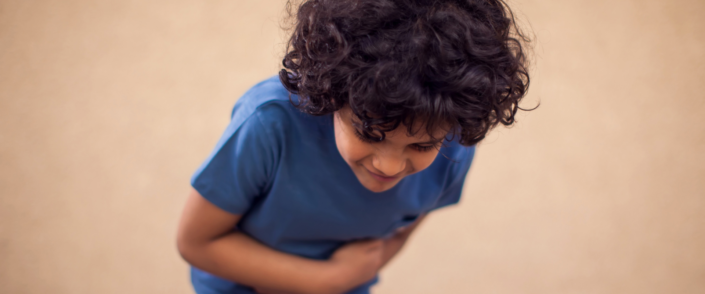As parents or caregivers, keeping children safe is our top priority. However, despite our best efforts, accidents can happen. One of the most common accidents that can be prevented is unintentional poisoning from medication.
It’s important to understand that medicines are not sweets and should be treated with care. In fact, according to the Centers for Disease Control and Prevention (CDC), medicines are the leading cause of child poisoning deaths. Therefore, it’s crucial to take extra precautions to ensure that medications are stored safely out of reach of children.
Here are some tips to help keep your child safe when it comes to medicines:
Store Medications Properly: Keep all medications in their original containers and store them out of reach of children. Make sure the lids are tightly secured and that the containers are stored in a locked cabinet or in a high, hard-to-reach area. Avoid leaving medications on counters, bedside tables, or other easily accessible areas.
Be Mindful of Guests: If you have guests in your home, make sure they also store their medications out of reach of children. Encourage them to keep their medications in their bags or luggage, which should be stored in a safe place.
Dispose of Medications Properly: Check the expiration dates of all medications and dispose of any that are outdated or no longer needed. Never flush medications down the toilet or throw them in the trash, as this can harm the environment. Instead, take them to a designated medication drop-off location, such as a pharmacy or police station.
Educate Your Child: Teach your child about the dangers of medications and explain that they should never take any medication without an adult’s permission. Also, teach your child to always ask an adult before putting anything in their mouth.
Be Prepared: Accidents can still happen, even when precautions are taken. Be prepared by keeping the number for Poison Control (0861 555 777) readily available. Post it in a prominent location in your home, such as on the refrigerator, and program it into your phone.
- Call 10111 if your child is unconscious and start CPR if your child is not breathing.
Remember, prevention is the key to keeping children safe from accidental poisoning. By taking these simple steps, you can help ensure that your child stays healthy and happy.
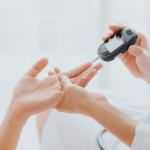
Managing a Diabetic Emergency
A quiet coffee break turned critical in seconds.Trauma nurse Catherine Rodwell shares how quick action—and a teaspoon of syrup—helped save a life during a sudden diabetic emergency. Whether you’re a parent, teacher, or just someone who wants to be prepared, this story is a powerful reminder of why first aid
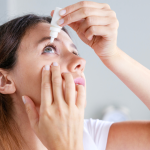
Clear Vision: Eye-Injury Emergency Steps
Your eyes are delicate and exposed, making them especially vulnerable to sudden injuries — whether from chemical splashes or small foreign objects like dust, metal shavings, or wood splinters. Knowing how to respond quickly and correctly can protect vision, reduce damage, and prevent long-term complications. Here’s a simple guide to

Strap In for Safety: Master Baby Car Seat Use
A correctly installed car seat is your child’s first line of defense on the road. Every year, misuse or poor installation contributes to preventable injuries during vehicle accidents. In this guide, we’ll cover the essentials of choosing, installing, and adjusting your baby’s car seat — so you can drive with
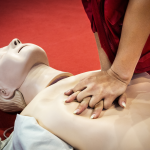
Why Everyone Should Learn CPR
In an emergency, the actions you take in the first few minutes can mean the difference between life and death. Cardiopulmonary resuscitation (CPR) is one of the simplest and most effective ways to help save a life — and yet, many people still don’t feel confident enough to use it
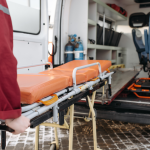
Who & When to Call Emergency Services
In an emergency, every second counts — but knowing when to call for help can make all the difference. Whether it’s a medical crisis, accident, or unexpected health scare, many people hesitate or second-guess themselves in the moment. That delay can be dangerous. The truth is, it’s better to call
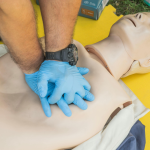
Top 5 CPR Myths Debunked!
When it comes to CPR (Cardiopulmonary Resuscitation), misinformation is everywhere. These myths can prevent people from stepping in to help when every second counts. At Survival CPR, we believe knowledge is power—and in this case, it could be life-saving. Separate fact from fiction and empower yourself to act confidently
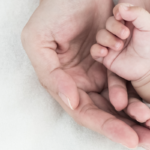
About
Welcome Founded in 2001 by Sister Catherine Rodwell, a seasoned trauma and ICU expert with extensive experience in medical evacuations across Africa, Survival® CPR is dedicated to empowering individuals with life-saving skills. Her mission is to equip parents, nannies, childminders, teachers, and employees with the knowledge and skills to respond

Scholars CPR and First Aid Course
Scholars CPR and First Aid Course Children can save lives! Our Scholars CPR and First Aid Course is tailor-made for young children from the age of 9 to 18. This vital course will enable young and older children to know how to handle an accident or emergency involving children and
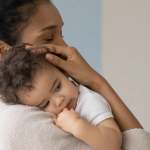
Baby and Child CPR and First Aid Course
Baby & Child CPR and First Aid Course Our Baby and Child CPR and First Aid Course is tailor-made for parents. This vital course will teach a parent how to handle an accident or emergency involving babies and children. You will learn how to handle all First Aid emergencies as


